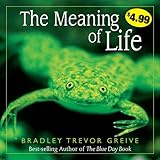Forms or Substance
Your Life...Your Choice

The meaning of Life?
Throughout history, man has struggled with the meaning of life. Why are we here? What is our purpose? How did we come to know the things we know? It is these types of questions and many others which have led to the development of religions worldwide, as well as some profound philosophies on life and humanity. It is common to see differences in opinion or thoughts when it comes to questions or philosophies of this nature. To offer an example of these differences we will look at two theories, Plato’s theory of Forms and Aristotle’s theory of Substance and compare their similarities as well as differences.
A question that is often asked is “what is it that makes the man?” Is it the physical body or the soul? Has the soul always existed and is it eternal? Plato attempts to answer this question in his theory of forms. Aristotle has his thoughts on this matter as well based on his own theory of substance. One of the main differences between Plato and Aristotle's theories is that Plato believed a world of ideas or ideal forms existed apart from human beings and Aristotle believed no universals could exist apart from their relationship to human beings. What does this mean? Let us examine each of these theories a little more in depth and see what we have for the outcome.
Plato’s theory of forms is based in the premise of the soul existed prior to joining the physical body. He reasoning for this is that everything that we see in the physical world must have an absolute or ideal form in the spiritual plane, a place the soul exists prior to entering a body. He speaks for Socrates when he states “will not a man attain to this pure thought most completely if he goes to each thing, as far as he can, with his mind alone, taking neither sight nor any other sense along with his reason in the process of thought, to be an encumbrance” (Baird). He argues that nothing that is of the physical can be completely perfect. He also presents the point that humans are born with knowledge of the forms of physical items and that this knowledge must have origin someplace. Aristotle maintains, however, that without the physical nothing that is of the metaphysical can exist. His argument is that all things are composed of substance and are named by three standards. Equivocally named for when they have a name only in common but defined differently, univocally named for when they have the same name and defined the same, and lastly derivatively named for that which derive their name from another (Baird).
When it comes to living the physical life, Plato’s theory lends to the thought that only those who are seekers of true knowledge have no fear of death, in fact they welcome it. With this being said, Plato goes on to add that the “true philosopher studies to die” (Baird). He also feels that for those true seekers of knowledge, the body and soul are at odds, with the soul seeking true wisdom and knowledge and the body constantly attempting to lead the soul away from this wisdom into the temptations of things that are physical and thus not perfect. Aristotle, on the other hand, sees the physical as part of the whole and compares his thought to a sentence. A sentence is forms with words, some are the subject, others verbs, and yet others adjectives. To explain this in a different way, a named man (Bob, for example) would be the subject, and the rest of the sentence would be used to tell what Bob looks like or is doing. It is noted that words alone don’t make a sentence; neither can a sentence make sense unless it is formatted correctly. If we look at this from a different angle, we can say a named man is a lone unit, but can be included in mankind, which can be included into the animal kingdom. But not all animals are men and neither is all mankind named Bob.
When it comes to eternal existence of the soul, we come into an area that doesn’t come to a clear conclusion with either theory. Plato’s theory concludes with the thought that if the soul exists prior to combining with the body and that this soul retains the memory of ideal forms from the other realm, then it stands to reason that once the body dies, the soul returns to the realm from which it came. Aristotle’s theory holds that substance cannot be changed unless it becomes something different. An item cannot be both good and bad in the same instance; it has to be one or the other. If it is good, then it is always good it may more or less good than a previous time, but it is always good. For change to happen it must pass from one state to another. In other words, it isn’t the substance that changes, but that something else undergoes the change (Baird).
We have briefly looked into each theory and if we were to decide which, of the two we would find more convincing, one might be more drawn to Aristotle’s theory of substance. While neither argument is perfect, Aristotle does use an argument that can be observed with the five senses and thus are easier for each person to interpret in almost the same way every other person might interpret it as well. Plato’s argument leaves to much in the mind and “feelings” of a person and these types of interactions are hard to compare from person to person. Aristotle focus can be easily modified to evolve with the times, while Plato’s focus could lead one into the realm of myth and fantasy. For the person of science, Aristotle’s theory is the more convincing argument. For the person of religion or faith, Plato’s theory would leave little question to its correctness. If this author had to choose which argument is the most convincing, it would be Aristotle, as his argument can be physically proven for the most part and leaves little to the imagination or personal interpretation of the mind.
Works Cited
Baird, Forrest E. Ancient Philosophy Volume One. Upper Saddle River: Prentice Hall, 2011,2008,2003.









